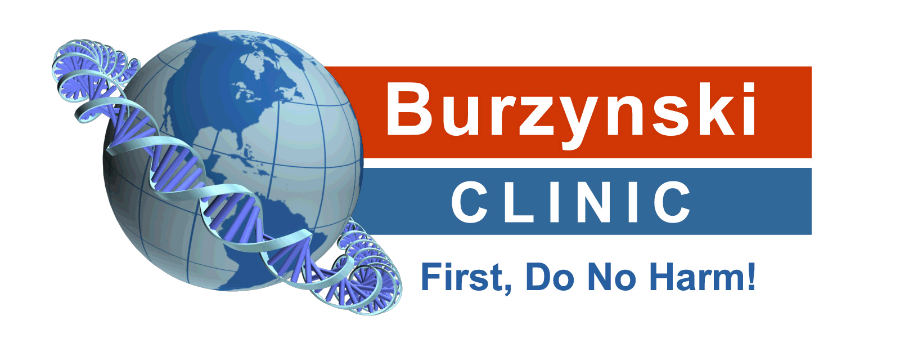Early Detection Saves Lives at Burzynski Clinic
Jun 9, 2025 | By: Burzynski Clinic
Did you know that early detection of cancer can significantly increase the chances of successful treatment? When it comes to cancer care, timing is everything. At Burzynski Clinic, we believe leveraging advanced diagnostic tools like molecular and genetic testing is essential to not just catch cancer early, but to also tailor treatment that enhances every individual’s healing journey. In this blog post, we will explore the importance of early detection, the steps you can take for better health monitoring, and how these efforts can lead to personalized and effective cancer treatments.
Understanding the Importance of Early Detection
Cancer is a leading cause of death worldwide, but many types of cancer are treatable when detected early. Early detection means identifying cancer at its most treatable stage, allowing for intervention before the disease progresses. It is sometimes true that cancer can develop without symptoms for years, making regular monitoring and diagnostics critical to successful outcomes.
At the Burzynski Clinic, our approach focuses on understanding cancer before it manifests into more complex conditions. Early detection can mean various things depending on logistic factors like the type of cancer and available out-of-pocket resources, but generally includes methods like molecular and genetic testing, precision blood panels, and real-time monitoring of changes in the body’s biological markers.
The Role of Molecular and Genetic Testing
Molecular and genetic testing are revolutionary tools that aid in identifying cancer risk and potential development pathways at the cellular level. By analyzing a person's DNA, these tests can uncover mutations that lead to specific cancers or influence the choice of treatment. The advancements in biotechnology have allowed for more nuanced understanding of how tumors grow. Individualized assessments can reveal whether a specific genetic mutation may affect treatment options, leading to more targeted therapies that consider a patient’s genetic makeup.
For instance, if a test indicates a mutation associated with breast cancer, clinicians can adjust a patient's treatment plan earlier based on these findings, improving survivability.
Precision Blood Panels: A New Frontier in Cancer Care
Precision blood panels are another key element of modern oncology. These blood tests analyze various biomarkers that signal the presence or progression of cancer. Regular blood tests can provide actionable insights that inform better treatment decisions. By utilizing these tests, clinicians at Burzynski Clinic can track tumor markers in real-time, adjusting treatment protocols as needed to ensure the best possible outcomes.
Research continues to validate that patients who undergo regular screenings, including precision blood panels, tend to have favorable prognostic results compared to those who undergo spontaneous checks. Monitoring trends over time can reveal patterns that indicate the effectiveness of treatment or the need for modifications.
Ongoing Progress Monitoring
Ongoing progress monitoring refers to consistent evaluation of a patient's health status through various tests – not just at diagnosis, but throughout their treatment journey. It’s essential to stay proactive rather than reactive. At Burzynski Clinic, our ongoing monitoring assesses how well treatment is working and identifies any potential side effects that could come into play.
For instance, monitoring might reveal that a certain treatment is causing unexpected side effects, enabling clinicians to pivot and change medication or dosage before problems escalate. Ongoing evaluations thus prevent recurrence and allow individuals to make informed decisions about their care pathways.
Real-Time Treatment Adjustments
The significance of real-time adjustments cannot be overstated. With cancer treatment protocols traditionally being static, a static approach can lead to unnecessary discomfort and poor outcomes. However, by adopting a dynamic treatment approach that adjusts based on ongoing results, patients can enjoy therapeutic plans that respond to their unique situations.
Real-time treatment adjustments mean patients can potentially avoid unnecessary treatments that yield no benefit, focus on those that are leading to progress, and ensure their body is always responded to as needed. It creates a more cooperative treatment environment between doctor and patient.
Conclusion: What Changes Can You Make Today?
Ultimately, the key to effective cancer care lies in understanding your body at a cellular level. By embracing these diagnostic techniques and lifestyle choices that promote health, you enhance your capacity for early detection and effective intervention. Engaging with your body through regular screenings, blood panels, and being proactive can give you a head start against a disease that thrives on delay.
So, what changes can you make today? Take control of your health journey by embracing proactive healthcare strategies. To learn more about early detection and personalized treatment plans by contacting Burzynski Clinic today!


Leave a comment
0 Comments